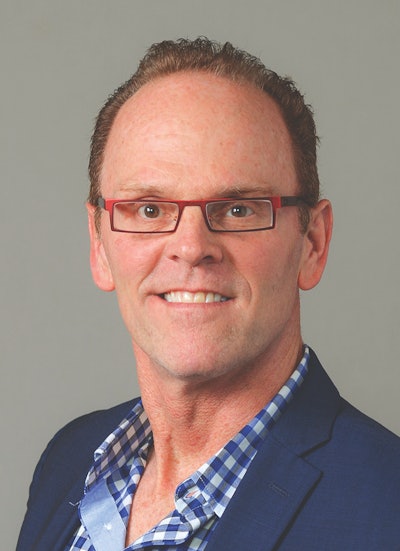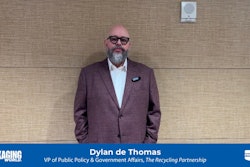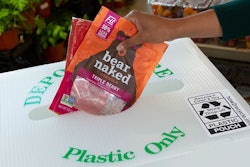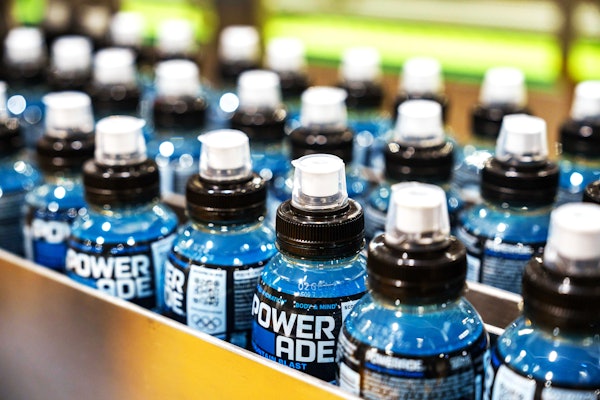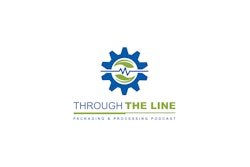Last September, we took a deep dive on the substance of new packaging producer responsibility laws in the U.S. As a reminder, Maine and Oregon enacted laws in 2021, and Colorado and California followed suit in 2022. Packaging producers (generally brand owners) will start paying into all these new systems over the next three to four years—in Colorado and Oregon in mid-2025, in Maine in late 2026, and in California in early 2027. In January, we gave a brief update on implementation of those four laws. A lot has happened in terms of implementation of these laws, so let’s take a closer look.
Oregon
As previously reported, Oregon is moving quickest with implementation of its law, including significant work performed by the Recycling Material Acceptance Lists Technical Workgroup, the Oregon Recycling System Advisory Council, and the Rulemaking Advisory Committee.
The Oregon Recycling Modernization Act (RMA) requires the Oregon Environmental Quality Commission (EQC) to identify by rule two lists of materials, the first being materials collected by local governments or their service providers and the second being materials a producer responsibility organization (PRO) must provide for collection through a recycling depot or mobile collection events. In March 2022, the Oregon Department of Environmental Quality (DEQ) closed a public comment period on a request for information seeking intelligence to help evaluate materials under consideration. The Recycling Material Acceptance Lists Technical Workgroup then met six times between March and September of 2022 and provided information and feedback on evaluation methods, data sources, and preliminary research findings for various materials. Later this year, DEQ will formally propose rules to the EQC that identify acceptance lists and collection targets/standards.
The Oregon Recycling System Advisory Council (ORSAC), on which AMERIPEN holds a seat, was established under the RMA to DEQ and the PROs on key recycling system elements, including the uniform statewide collection list, PRO program plans, and more. The ORSAC represents local governments, community-based organizations representing the interests of historically underserved groups, small business, environmental nonprofit organizations, the recycling industry, service providers, processors, or material end users and producers of covered products or producer trade associations or suppliers. The ORSAC has already met six times between March 2022 and April 2023 and will continue throughout ongoing implementation in perpetuity. Work of the ORSAC to date has included review and discussion of the previously mentioned material acceptance lists, PRO obligations, local government compensation, responsible end markets, and numerous rules under development to implement the RMA.
Oregon DEQ is undertaking rulemaking to clarify and implement the RMA. The first rulemaking began in 2022 and relates to requirements under the RMA producers of packaging, paper products, and food-service ware to support and expand recycling services in Oregon for their products. Topics under consideration for this first set of rules include producer responsibility program plan content; DEQ’s administrative fees; the funding and reimbursement of local governments for eligible recycling-related expenses; and the materials suitable for recycling collection in Oregon. The Rulemaking Advisory Committee was chartered to review technical issues and fiscal impacts related to the proposed rules, and its members reflect a range of entities that will be both directly and indirectly affected by the rules. They have met six times between July 2022 and April 2023. DEQ plans to begin a second rulemaking later in 2023 covering additional topics, with that second rulemaking process carrying into 2024.
Maine
Implementation of Maine’s law will require extensive rulemaking that must be initiated no later than December 31, 2023, by the Maine Board of Environmental Protection (BEP). Adoption of routine technical rules and provisional adoption of major substantive rules by BEP is anticipated to occur by the summer of 2024, with submittal of major substantive rules to the Maine Legislature for approval by January 2025. It is expected that BEP would then adopt the final major substantive rules no later than summer 2025.
To aid the development of all these proposed rules, the Maine Department of Environmental Protection (DEP) has begun a robust stakeholder engagement and outreach process to gather information to inform their rulemaking. This stakeholder engagement process is scheduled to continue into December 2023. To solicit input from stakeholders in an organized manner, DEP is holding a minimum of two meetings on each topic: the first to allow all stakeholders to become familiar with each other’s perspectives and needs and the second to allow for discussion on how varying needs shared in the first meeting can be appropriately considered during rulemaking. Draft rules will be published for public comments for the DEP to consider prior to BEP adoption. These meetings began in December 2022, and agenda topics include producer exemptions, payments, and reporting; program goals; readily-recyclable criteria; municipal reimbursements; education; investment; and audits. For more complex topics, DEP may schedule additional focus meetings if needed.
Colorado
As previously reported, Colorado took the first step in beginning implementation of its law by seating the producer responsibility Advisory Board in December 2022. The individual members of the Advisory Board represent local governments, recycling companies, nonprofits, and other key stakeholders, to help the state oversee the program. Their responsibilities include advising the PRO throughout the needs assessment process; review the needs assessment; review the PRO program plan; consult with the PRO on amendments to the proposed and any amended program plan; consult with the PRO on the development and updating of the minimum recyclable list; and review the PRO’s annual report. The Advisory Board has met three times between January 2023 and March 2023.
The Colorado Department of Public Health & Environment (CDPHE) held its first rulemaking stakeholder meeting in early March. The first rulemaking hearing with the Colorado Solid & Hazardous Waste Commission is scheduled for mid-May, where the first proposed rule related to adjust annually by rule the producer dollar limitation exemption, based on the consumer price index, will be heard. This first rule is expected to be adopted and go into effect by July 2023, after which initial drafting of primary regulations will take place during the second half of 2023 and related stakeholder meetings during the first half of 2024.
While Colorado was the third state to enact a packaging producer responsibility law in the U.S., it will be the first state to select the first PRO. Letters of intent from interested entities were due in March 2023 with applications then due in April 2023. While CDPHE must appoint the PRO by June 2023, they have indicated they anticipate making the appointment in May 2023.
California
California, where the most recent law was enacted in September 2022, is scheduled to get underway with its implementation processes by seating its Advisory Board in mid-2023. Applications for the Advisory Board were due in early April 2023. The Advisory Board will work with CalRecycle and the PRO to review the needs assessment, program plans, and recycling rates and to offer other technical assistance. It is currently anticipated that CalRecycle will publish a list of recyclable and compostable materials in 2024, and regulations implementing the new law will be completed in 2025. CalRecycle has begun holding informal rulemaking workshops and engagement with stakeholders that is slated to continue throughout much of 2023, after which they plan to shift to formal rulemaking workshops and engagement with stakeholders to begin in early 2024 and run throughout the year.
Just like the legislative process leading up to enactment of these new laws, AMERIPEN will continue its dialog with administrators and policymakers to advocate for the industry and use its expertise to build programs that are reliable, efficient, equitable, and fair. Brand owners and packaging companies are strongly encouraged to also get involved in the implementation and rulemaking for these new packaging producer responsibility laws, as there is still ample opportunity to influence the development of these new programs.
AMERIPEN represents the U.S. packaging value chain by providing policymakers with fact-based, material-neutral, scientific information. Contact Dan Felton at [email protected].
